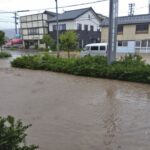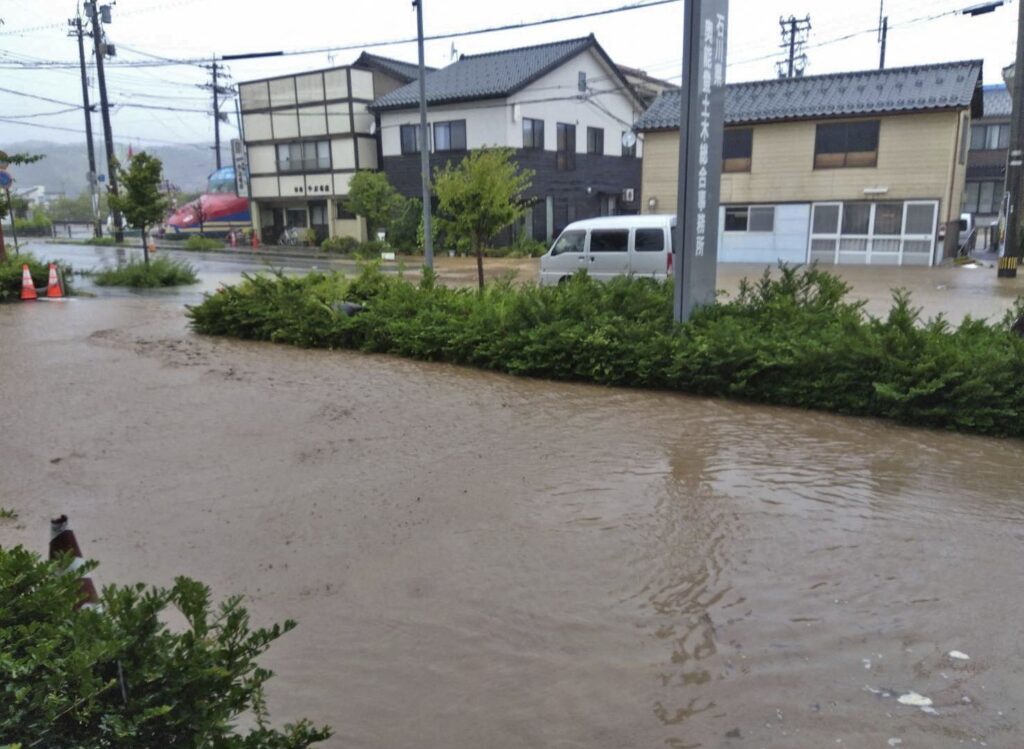
A dozen rivers burst their banks in Ishikawa where the meteorological agency issued its highest alert level.
Japanese authorities have told tens of thousands of people to evacuate the earthquake-hit region of Ishikawa as “unprecedented” rains triggered floods and mudslides.
The Japan Meteorological Agency (JMA) on Saturday issued its highest alert level for Ishikawa and public broadcaster NHK reported that two people were reported missing in the prefecture’s Wajima city due to the flooding.
The fire department reported receiving several rescue calls in the cities of Wajima and Suzu, in central Japan’s Noto peninsula, which were among the areas hardest hit by a New Year’s Day earthquake that killed at least 236 people.
About 44,700 people have already been ordered to evacuate in Wajima and Suzu, as well as Noto town, officials said.
JMA forecaster Satoshi Sugimoto told reporters that the areas under the warning were seeing “heavy rain of unprecedented levels”, adding “it is a situation in which you have to secure your safety immediately.”
Another 16,000 residents in Niigata and Yamagata prefectures north of Ishikawa were also told to evacuate, the agency said.
Hourly rainfall came to a record 121mm (4.8 inches) on Saturday morning in Wajima, while neighbouring Suzu saw 84.5mm in an hour, also an all-time high.
Video footage aired by NHK TV showed brown floodwaters turning streets into rivers in Wajima, with cars half submerged.
At least 12 rivers in Ishikawa breached their banks on Saturday, according to the Land and Infrastructure Ministry.
Power company officials said nearly 6,000 households in Ishikawa were left without electricity, NHK reported.
Weather agency officials warned people in the affected areas to exercise “maximum caution” amid flooding and said possible mudslides could be “life-threatening”.
Scientists say human-driven climate change is intensifying the risk of heavy rains in the country and elsewhere because a warmer atmosphere holds more water.
The region is still reeling from the magnitude-7.5 quake that toppled buildings, ripped up roads and led to a major fire.











More Stories
Recognising domestic violence as a cause of death: One mother’s long fight
US Secret Service admits failures in review of shooting at Trump rally
Travis King, US soldier who fled to North Korea, sentenced for desertion